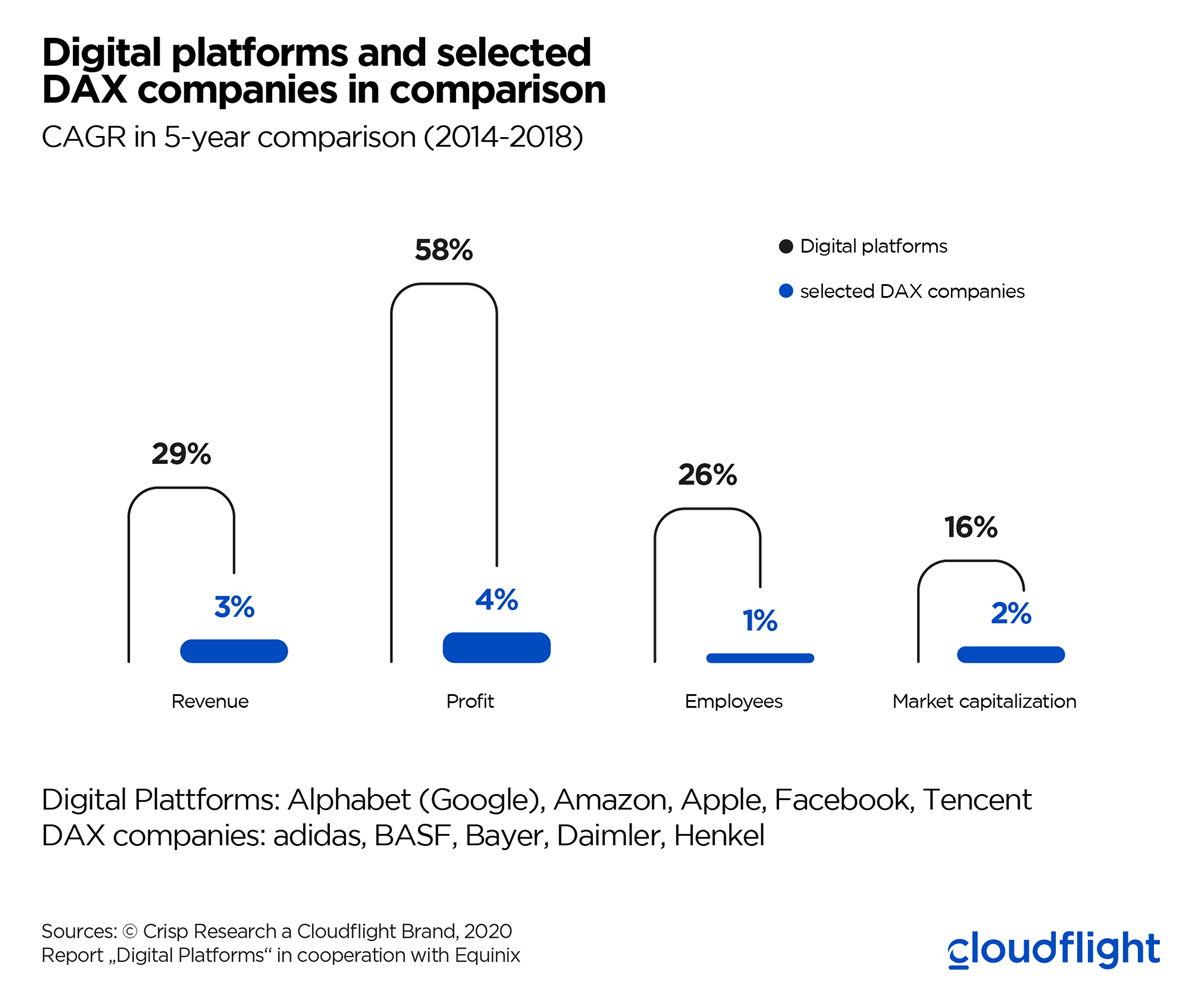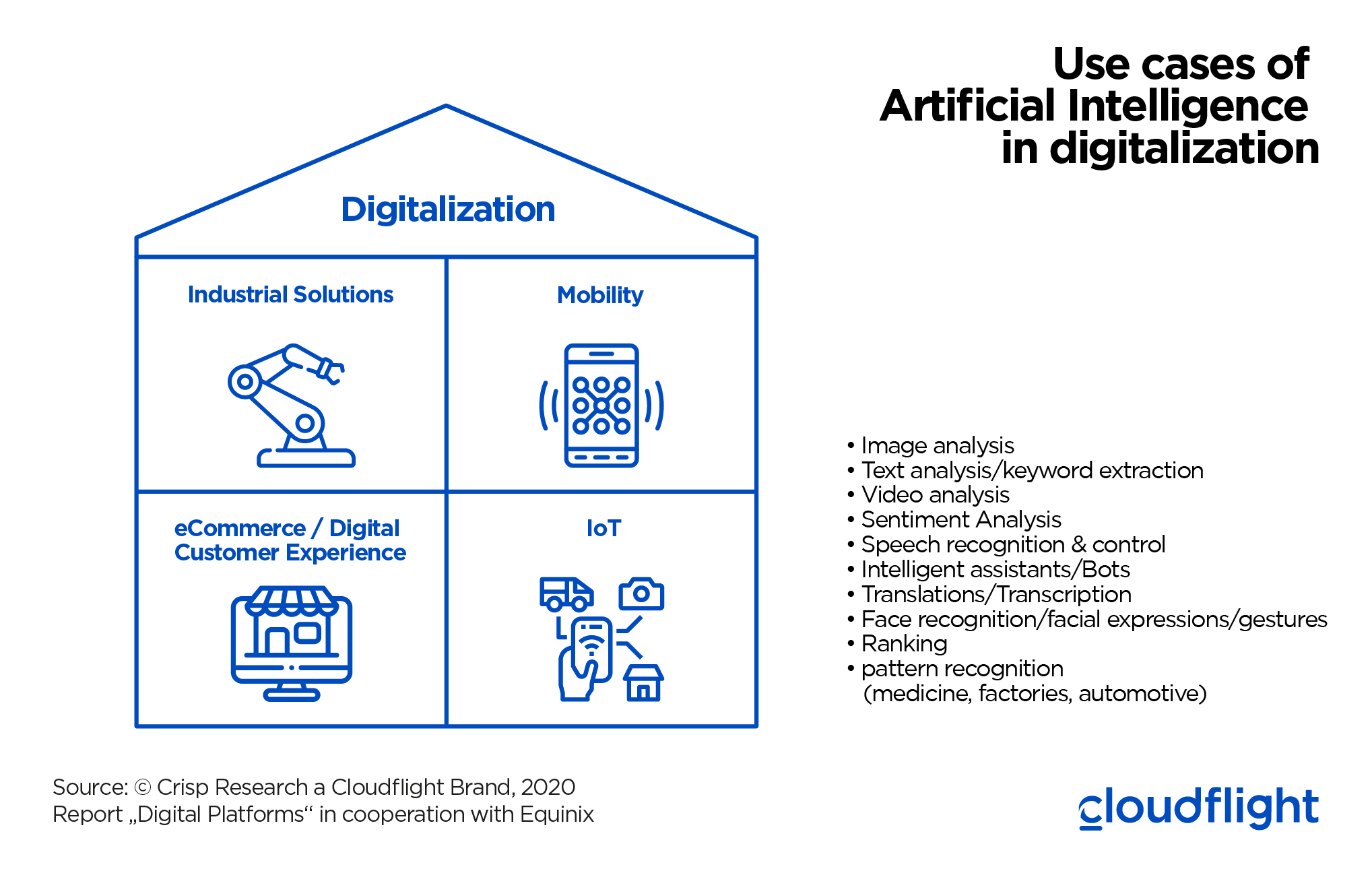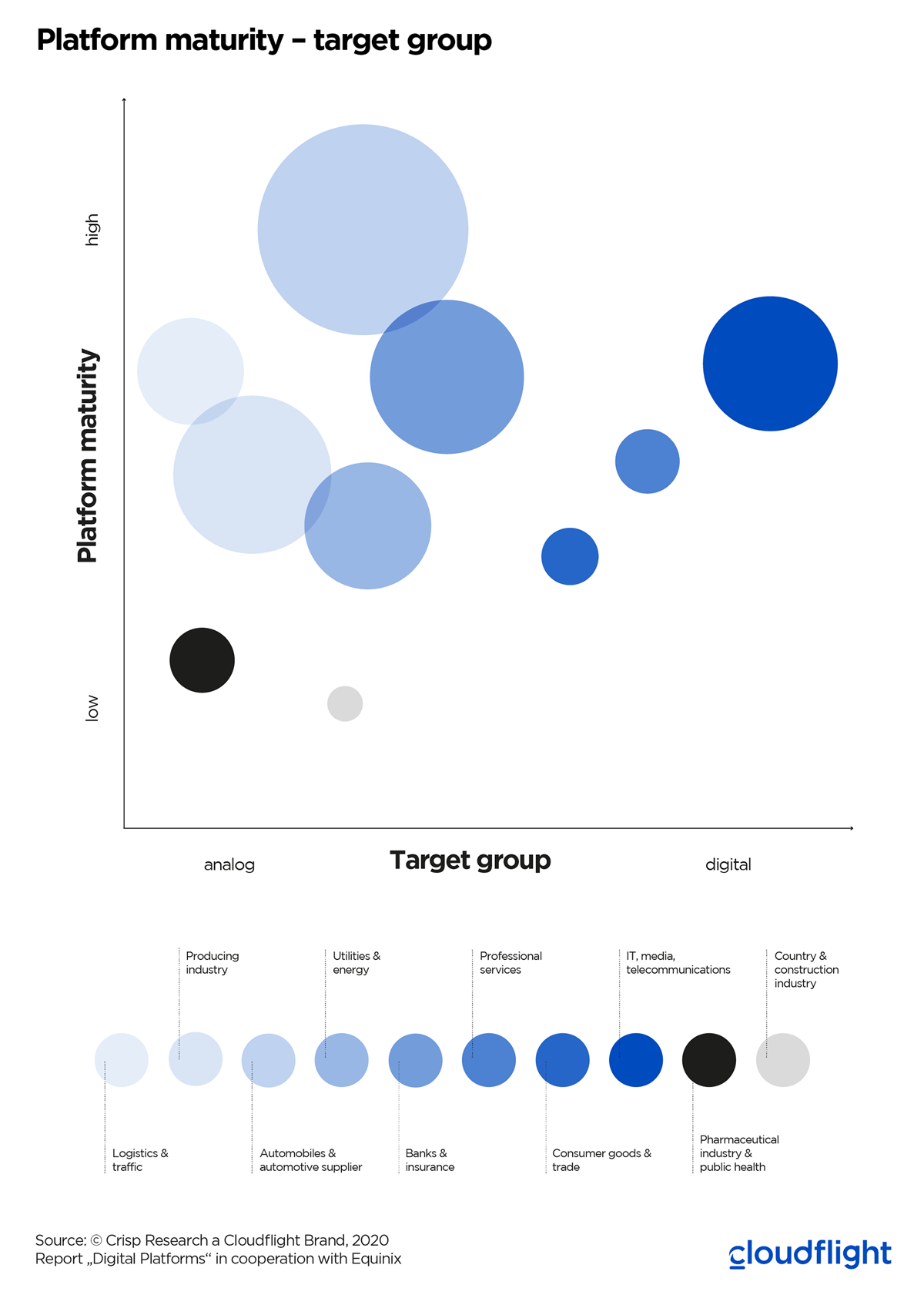Everyone wants digital platforms
What do Apple, Facebook, Google (alphabet), Tencent and Amazon have in common? Right, they are among the top 10 most valuable companies in the world. At the same time, however, they are also among those companies that have turned conventional commerce upside down with a new type of platform and the economy alikem. Their data-based digital platforms have changed value chains and driven the development of completely new business models. In Germany, too, digital platforms are becoming increasingly popular and are penetrating a wide variety of domains. The best-known German digital platforms include, for example, the online ordering platform Delivery Hero or Lieferando or the mobility platform moovel, which will soon be continued as REACH NOW due to the joint venture between the BMW Group and Daimler AG. Also in the course of the Corona crisis, numerous digital platforms such as #pflegereserve or Das Land hilft were launched as reporting and mediation portals to provide medical facilities and agricultural businesses with fast and unbureaucratic support in such cases.
At present, almost all leading companies in Germany are working on building up a digital line of business and anchoring a substantial portion of digital revenues in their growth plans. Currently, digital revenues generated from digital products, services and platforms are, with some exceptions, still more of an add-on or attractive subsidy business for the German corporate landscape. Digital revenues are still lagging behind revenues from traditional business but are growing increasingly. Cloudflight predicts that the future growth of the economy and companies will be made possible by up to 20 percent digital revenues already this year.
It is all a matter of the right approach
In order to successfully build and operate a digital platform, numerous factors must be met. These include, first and foremost, a fundamental change in the business model within the relevant areas, which is almost immediately accompanied by a change in culture and organization. On the other hand, digital technologies, connectivity, agile infrastructure concepts and digital features are moving from being hygienic to being a differentiating factor. For this reason, despite growing cost pressure and stagnating sales in the core business, investments will be necessary to accelerate the transformation of the company and the development of digital platforms.
At present, many decision-makers still have a very diffuse understanding of digital platforms. Implementation cannot be brought to a halt, as it costs monetary and human resources and possibly also reputation, should it go wrong. Also, a digital platform does not make sense everywhere or not every application needs a digital platform. For the implementation, therefore, a targeted approach is needed above all or one of the following options :
- Digital sales with existing products/solutions: Existing products and solutions can be extended by a digital platform and thus be used for new possibilities of interaction and thus revenue generation. For example through software, analytics platforms or similar, even formerly analogue products can generate digital revenues.
- Digital sales with new platforms: Digital platforms can be launched from scratch and thus cover an area of application that was previously not possible or could be achieved through other means. The company’s turnover is based purely on the digital consumption of users.
- Efficiency potentials in existing processes: Digital platforms must not only increase sales but can also increase efficiency, reduce costs and thus improve the annual result. Digital platforms can directly simplify and improve existing processes in the company, as is largely the case in the production or service sectors.
- Efficiency potentials through new digital processes: New digital processes describe a process that is only made possible by digital solutions. Here it is quite complex to find a use case. Nevertheless, it is conceivable that digital platforms could expand the scope of action of companies and thus further increase efficiency.
Similar to the digital product evolution, which ranges from the modernization of a traditional product to the establishment of a digital ecosystem, different digital platforms can be targeted depending on the objective in order to generate new value for the own company or customers.
German industries and their digital platforms
Once the appropriate platform strategy has been identified, qualified employees and management skills are required to successfully tackle its implementation. From internal processes and roles to customer contact – digital leadership skills and technical expertise are in demand and must be developed.
A common problem that many companies face in the course of platform or digitalization activities is the monetization of digital products and services. Less and less data is being deleted – the volume of data that needs to be controlled is growing. The increasing networking of devices and sensors means that the value-added chain, from production to consumption, is also becoming tangible. However, it is not enough to collect, store and process the data in order to establish a digital platform or a data-based business model. In order for them to really generate value for a company, new correlations must be identified which, for example, increase output and lead to increased productivity. This is only possible if the new technologies are optimally embedded around digital platforms. And here the rule is: Practice makes perfect.
To outline the success of platform business in Germany, we have taken a look at Germany’s largest companies and, clustered according to their industries, assigned them to their platform maturity and target group.
The analysis of the German platform landscape has shown that especially those industries in which a number of digital platforms already exist have a head start. The larger the number of digital platforms, the more advanced and mature platforms are among them. In almost every industry, only the best platforms will prevail. Sooner or later, consolidation will be the order of the day. Some platforms whose use cases did not meet with approval, which were not technically mature or were only stepmotherly maintained by their originators, have already been sidelined – even in DAX companies. All in all, it is clear that German companies have internalized the importance and potential of the use cases contained in digital platforms. In terms of success or even the degree of networking, there is certainly still room for improvement.
Digital platforms with Machine Learning & AI
The degree of interconnectedness, regardless of the platform, which results from the more or less strong networking of infrastructures, data, things and also people, forms the framework for the ecosystem. The more integrated it is, the larger the above-mentioned data volumes become and the more important the analysis and evaluation methods are.
Machine Learning and Artificial Intelligence are taking digital platforms to the next level and can become the essential levers for their future competitive strength and profitability.
Many applications of AI will be found even more frequently in digital platforms in the future. The necessary know-how for the development and operation of these technologies is a factor that decision-makers and companies should consider in their platform strategy in any case.
Would you also like to add “software-defined” value to your products? Or do you already have a suitable method for data analysis and evaluation? Read the full Digital Platforms report, created in collaboration with Equinix to provide an approach on how you can design your digital platform and make it a success. Or book your co-creation workshop on digital business models or machine learning & AI now.¹ https://www.uni-rostock.de/universitaet/kommunikation-und-aktuelles/medieninformationen/detailansicht/n/wie-alt-werden-unternehmen-in-deutschland-4041/

